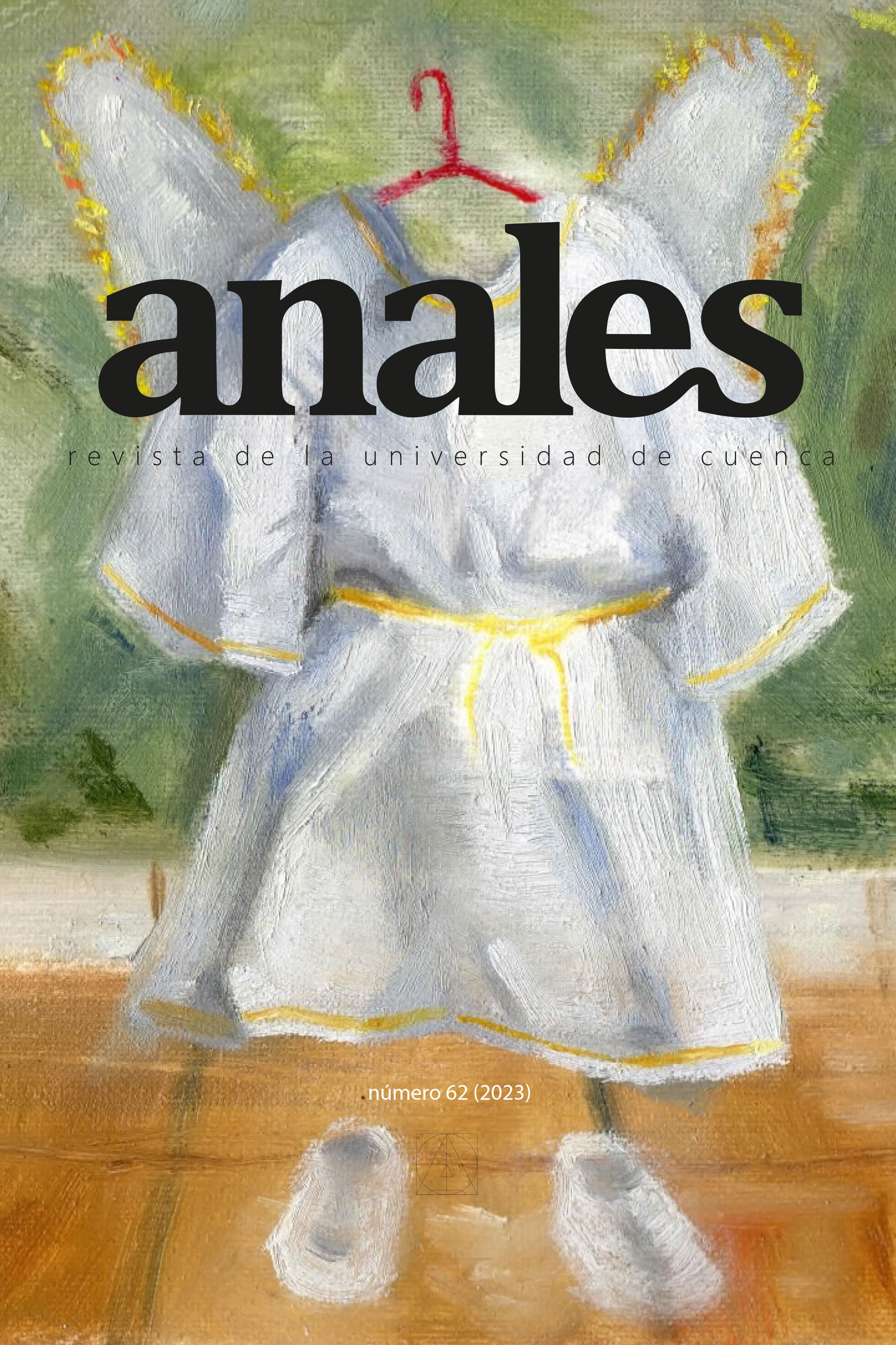Analysis of the Emotional Process to Support the Creation of Scenic Characters
Keywords:
character creation, analysis, emotions, brain, expressive emotional line.Abstract
In scenic art and, specifically in the creation of characters, it is essential to value emotions as part of a study that allows awareness of the real ones, in order to create the fictitious ones. It would be ideal to analyse how emotion entails a process of knowledge and practice where the artist inquiries about the effects that emotions have on their actions, in order to make their body-mind conscious and optimize their capacities at the moment of creation. Thus, it is possible to recognize the correspondence between the circumstances of the scene, the character’s thought and line of action through his mental, physical and emotional work. To more clearly develop the objective of this article: -exposing elements that make up a conscious analysis of the emotional process through different theoretical references and with the purpose of serving as the construction of characters in stage productions-, three sections will be established: Emotional Intelligence, Development and functioning of the brain in front of the emotion and Emotional process. The expected result is that the stage artist becomes aware that, in fiction, the emotional expressive line of the character can be chosen: the first is sustained attention to emotional processes, the second is the ability to fixate, and the third is nourishment. in the process
Downloads
References
Asociación Nacional de Universidades e Instituciones de Educación Superior (ANUIES), (2021) MATEA para docentes. Educación y emoción de la mano. México. https://espaciodocente.mx/assets/ matea-para-docentes.pdf
Barrientos, G. J., Peñalva, V. A. y López-Goñi, J. J. (2016). Incidencia de la educación emocional en la salud emocional del profesorado: estado de la cuestión. En J. L. Soler, L. Aparicio, O. Díaz, E. Escolano y A. Rodríguez (Eds.). Inteligencia Emocional y Bienestar II. Reflexiones, experiencias profesionales e investigaciones (pp. 52-65). Ediciones Universidad San Jorge.
Bisquerra, R. (2005). La educación emocional en la formación del profesorado. Revista Interuniversitaria de Formación del Profesorado, 19(3), 95-114.
Bisquerra, R. (2016). Universo de emociones: la elaboración de un material didáctico. En J. L. Soler, L. Aparicio, O. Díaz, E. Escolano y A. Rodríguez (Eds.). Inteligencia Emocional y Bienestar II. Reflexiones, experiencias profesionales e investigaciones (pp. 20-31). Ediciones Universidad San Jorge. Ekman, P. (2013). El rostro de las emociones: signos que revelan significado más allá de las palabras. RBA Libros.
Goleman, D. (2018). La inteligencia emocional. Por qué es más importante que el coeficiente intelectual. Barataria.
Hue, C. (2016). Inteligencia emocional y bienestar. En J. L. Soler, L. Aparicio, O. Díaz, E. Escolano y A. Rodríguez (Eds.). Inteligencia Emocional y Bienestar II. Reflexiones, experiencias profesionales e investigaciones (pp. 32-44). Ediciones Universidad San Jorge.
Jiménez, P. (2022). Análisis dramático y emociones. Tsanta. Revista de Investigaciones Artísticas, (13), 333-344.
Mayer, J. D. y Salovey, P. (1997).What is emotional intelligence? En Salovey, P. y Sluyter, D. (Eds.). Emotional development and emotional intelligence: Educational implications (pp. 3-31). Basic Books.
Muñoz J. y Velarde, J. (Eds.). (2000). Compendio de epistemología. Trotta.
Muñoz, M. (2013). Emociones, sentimientos y necesidades. Una aproximación humanista. Castellanos de Impresión.
Oviedo, G.L. (2004). La definición del concepto de percepción en psicología con base en la teoría Gestalt. Revista de Estudios Sociales, (18), 89-96. https://journals.openedition.org/revestudsoc/ 24808
Peribáñez, M. (2016). Educación Emocional 3.0. En J. L. Soler, L. Aparicio, O. Díaz, E. Escolano y A. Rodríguez (Eds.). Inteligencia Emocional y Bienestar II. Reflexiones, experiencias profesionales e investigaciones (pp. 140-155). Ediciones Universidad San Jorge.
Salovey, P. y Mayer, J. D. (1990). Emotional Intelligence. Imagination, Cognition and Personality, 9(3), 185–211.
Schiffman H.R. (2004). Sensación y Percepción. Un enfoque integrador. Manual Moderno.
Soler Nages, J. L. (2016). Orientación, educación emocional y bienestar. En J. L. Soler, L. Aparicio, O. Díaz, E. Escolano y A. Rodríguez (Eds.). Inteligencia Emocional y Bienestar II. Reflexiones, experiencias profesionales e investigaciones (pp. 45-50). Ediciones Universidad San Jorge.
Vilatuña Correa, F., Guajala Agila, D., Pulamarín, J.J. y Ortiz Palacios, W. (2012). Sensación y percepción en la construcción del conocimiento. Revista Sophia: Colección de Filosofía de la Educación, (13),123-149.










